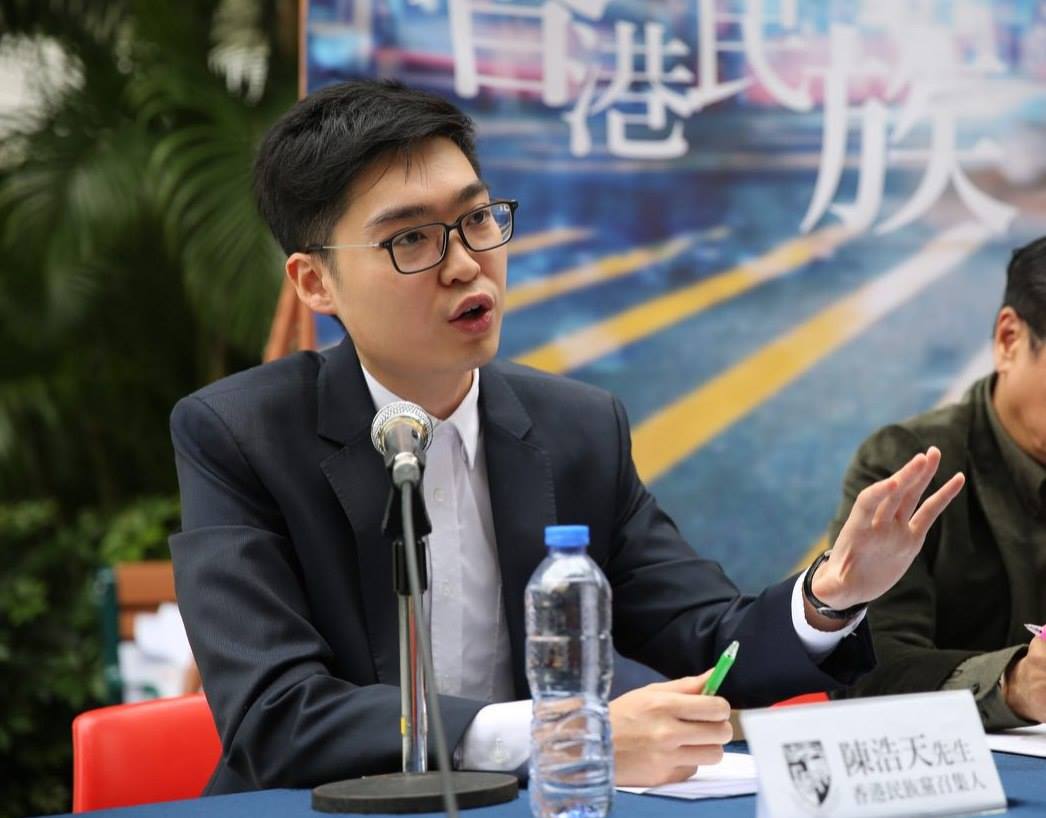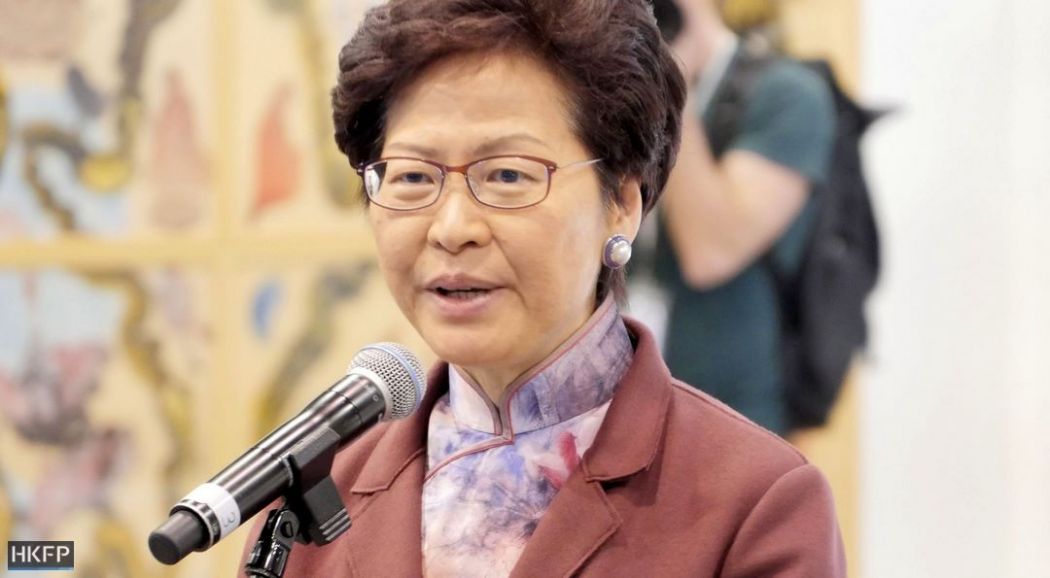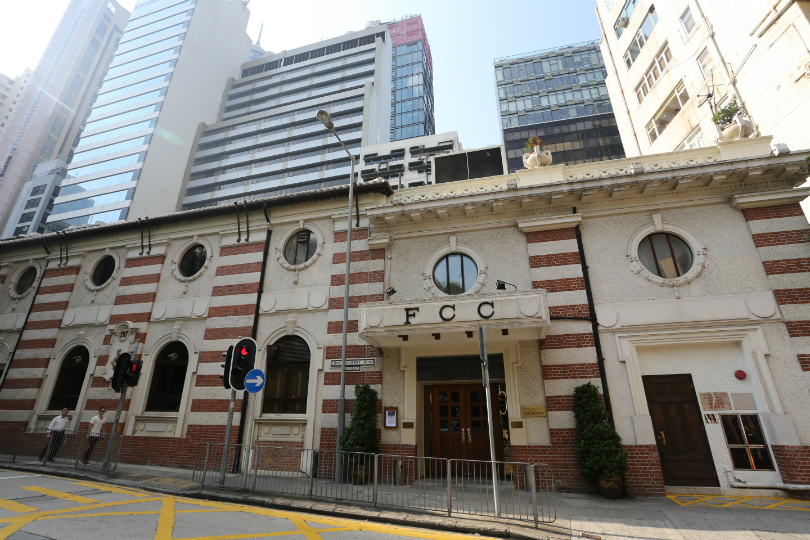Ex-Hong Kong leader Leung Chun-ying has hit out at the Foreign Correspondents’ Club (FCC) after Beijing officials asked it to cancel a luncheon event featuring pro-independence activist Andy Chan.

“This matter of inviting Andy Chan Ho-tin to speak at the club has nothing to do with press freedom,” Leung wrote in an open letter to the club’s acting president Victor Mallet on Sunday, after previously stating that there were limits on free speech and independence was a “red line.”
”CY Leung’s letter in full”
Dear Mr. Mallett [sic],
In response to my post today, reportedly you said the following:
“the value of the organisation, including that of Hong Kong, centred on a system that differed from the Mainland’s…… press freedom was endorsed locally and views from people across the political spectrum were permitted.”
We ought to be gravely concerned if this is the policy of your Club because before long you will invite advocates for Taiwan independence to speak publicly at your Club. Presumably then you will defend your decision by also arguing that those who oppose Taiwan independence would be given equal opportunity to present their views. Following this logic, you most probably will not draw any line against criminals and terrorists. As I said, we ought to be gravely concerned.
This matter of inviting Andy Chan Ho-tin to speak at the Club has nothing to do with press freedom. Press freedom is a core value that Hong Kong treasures so much, so that the Government of Hong Kong leased to the Club at a token rent the building on Ice House Street in Central. Not many organisations in Hong Kong have received from the Government this kind of support. Ironically, I presume these premises will be exactly where Andy Chan has been invited to present his case for Hong Kong independence.
Yours sincerely
CY Leung
Leung, a vice-chairman of the Chinese People’s Political Consultative Conference, claimed there would be grave concerns if an advocate of Taiwan independence spoke publicly at the FCC: “[Y]ou most probably will not draw any line against criminals and terrorists. As I said, we ought to be gravely concerned.”
He went on to mention the subsidised rental arrangement the 75-year-old club is granted by the government for its building in Central.

“Press freedom is a core value that Hong Kong treasures so much, so that the Government of Hong Kong leased to the club at a token rent the building on Ice House Street in Central. Not many organisations in Hong Kong have received from the Government this kind of support,” Leung wrote.
The club is set to host the convener of the Hong Kong National Party, which is facing a government ban, at a lunch talk on August 14. Announced on July 30, the talk is entitled “Hong Kong Nationalism: A Politically Incorrect Guide to Hong Kong under Chinese Rule.” Mallet confirmed with HKFP on Friday that the Chinese Ministry of Foreign Affairs in Hong Kong made a representation to the FCC.
“Our position is that we are a club that is a very strong defender of freedom of the press, and freedom of speech,” he said.

Chief Executive Carrie Lam also made reference to the club’s lease agreement when speaking to the press on Sunday, and said it was “regrettable” and “inappropriate” for the FCC to host Chan.
Lam said the club’s premises belong to the government and have been on lease at market rates since 1982. She added that she respects the work of the international press, and hopes that foreign journalists will respect the fact that Hong Kong is an inalienable part of China.
In response, Mallet told HKFP that the club pays a relatively high rent and is responsible for maintenance of the building: “[I]t’s certainly not a token rent.”
According to its 2016 financial report, the club spent HK$10,418,184 on “leasehold land and buildings” during the year ending March 31.
‘External forces’
On Friday, the Office of the Commissioner of the Ministry of Foreign Affairs in Hong Kong also said that city was an inseparable part of China and that Beijing opposes any moves by “external forces” to allow pro-independence groups to express themselves.

After a Commercial Radio show on Saturday, the head of Hong Kong’s largest pro-Beijing party said that Beijing had a right to express concern: “I think [under] One Country, Two Systems, we cannot allow our system to have something that will damage ‘one country’,” DAB party Chair Starry Lee said. “It is quite obvious that Mr Chan will advocate his independence idea, so I think it is fair for the central government to voice out their concern.”
Last month, the police told the government that there was a sufficiently strong case in the interests of “national security, public safety, public order, protection of freedom and rights of others” for the security secretary to ban the party, citing the Societies Ordinance.
On July 17, Chan was given 21 days to respond to a 900-page dossier, which contained 700 pages of his speeches and events collected by police over two years. Chan requested an extension until October since it was “unfair” for him to respond in such a short time.
The Security Bureau this week extended the deadline to 49 days – the party must now respond by September 4. However, the Bureau did not respond to Chan’s other request for access to surveillance records relating to him.
HKFP has reached out to the FCC for comment.
